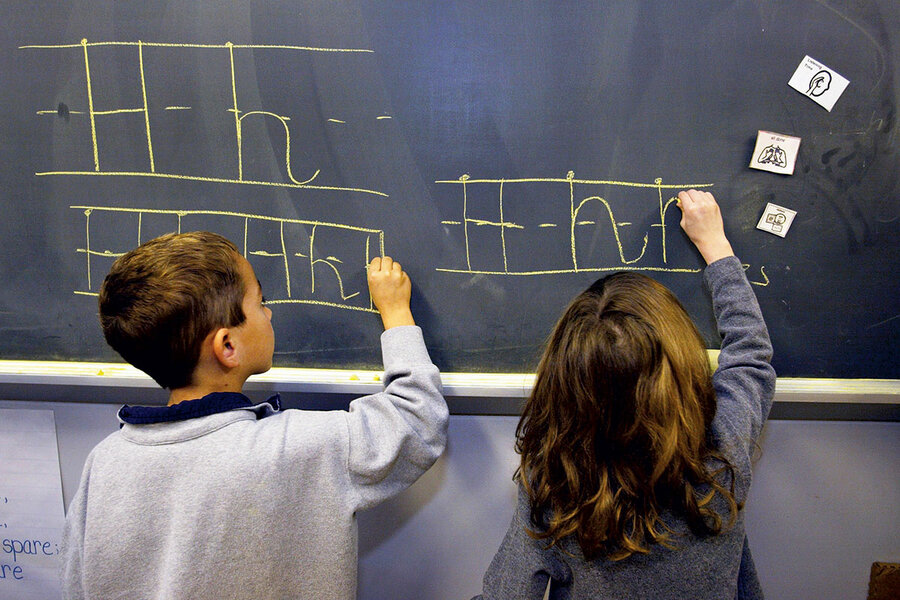From ‘skrzypce’ to ‘syzygy,’ falling in l-o-v-e with spelling
Loading...
I make no bones about it. I love to spell. The seed was planted early on.
I recall once, when I was about 8, walking with my mother down a busy city street crowded with Christmas shoppers. She remarked, “What chaos.” And then she stopped and looked down at me. “Do you know how to spell ‘chaos’?” I gave it my best and began with, “k-a-y ...” But Mom came to the rescue and spelled the word out. “It’s a tough one,” she admitted. “But now you know something you didn’t know before.”
My father was part of the conspiracy to burnish my spelling chops. Once, while replacing a fuse in the basement as I looked on (I think I was 10), he referred to the electricity meter. “Spell ‘gauge,’” he prompted. Again, I struggled with the word until Dad took mercy on me. A couple of days later, out of the blue, he again asked me to spell the word, and I’m happy to say I nailed it.
Why We Wrote This
A story focused onIn an era of instant gratification and fleeting pleasures, it’s easy to overlook the simple satisfaction that can be found in mastering foundational skills.
Ever since, I have loved to spell. Whenever I hear an unfamiliar word, even before I know what it means, I find myself mentally spelling it out. Thus it was with the recently acquired “anfractuosity,” a word I read in a news magazine about a migrant trying to overcome bureaucratic obstacles. (“Anfractuosity” refers to the twists and turns in a system.) I admit that I got so tied up in its spelling that I lost the thread of the story.
The thing about spelling is that orthography seems to have become de-emphasized over the years. When I was in elementary school, many moons ago, spelling was promoted with the same vigor one might employ in driving a team of horses. Spelling tests, spelling bees, spelling round robins. Of course, having been conditioned to spell well early on, I rose to all of these challenges and luxuriated in them. My reputation as a good speller grew to the point where, in fourth grade, I was asked to try out for a regional spelling bee. I drilled relentlessly with another student, reviewing list after list of challenging words. In the end I washed out, because I misspelled “syzygy.” (Oh, the shame!)
I have since recovered. Nonetheless, being an aficionado of spelling is a lonely vigil in an age when it doesn’t seem to be that important to most folks. Even at the university where I teach, the English department has a newly established policy of not correcting students’ spelling. The philosophy, I presume, is that it will stifle the students’ creativity. There also seems to be an undercurrent of belief that English spelling is just too hard.
I don’t know about the stifling part, but asserting that English spelling is difficult strikes me as a red herring. There are languages infinitely more complicated than English, and their speakers nevertheless learn to spell their vocabularies. I smile when I consider a word I learned in my college German class, referring to a chemical reaction: Reaktionsgeschwindigkeitsbestimmenderteil.
And then there’s the Polish word for violin, imparted to me by my grandmother: skrzypce.
How on earth did I learn to spell these words or even remember them? The answer: practice, impelled by a sense that, at some level, it mattered.
But I don’t need academic rationales to enjoy the practice of good spelling. I don’t value it because I feel I’m saving civilization, and I don’t pretend to be a model for others. The truth is that it gives me pleasure. P-l-e-a-s-u-r-e.
And I have never forgotten how to spell “syzygy.”





